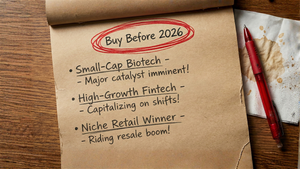
Singapore-based technology firm SMX is poised to revolutionize the global plastics market with its innovative molecular marker technology, creating "digital passports" for polymers. This groundbreaking approach promises to inject unprecedented transparency and traceability into the entire plastic lifecycle, from production to recycling, directly addressing the pervasive challenges of waste management and greenwashing. By embedding unique, sub-molecular identifiers into plastics and linking them to a secure blockchain platform, SMX aims to transform recycled materials into a verifiable, high-value commodity, fundamentally reshaping how industries approach plastic sustainability.
The immediate implications of SMX's entry into the market are profound. The technology offers a robust solution to verify sustainability claims, making it nearly impossible for companies to misrepresent the origin or recycled content of their plastic products. This verifiable proof is expected to boost consumer trust, empower regulators with real-time compliance monitoring, and unlock the economic potential of recycled plastics by providing a transparent, auditable trail. As the world grapples with an escalating plastic waste crisis, SMX's "digital passport" system offers a tangible pathway towards a more circular economy, turning waste into a valuable resource and setting new benchmarks for material traceability.
The Molecular Revolution: Tracing Every Plastic Particle
SMX's innovative molecular marker technology operates by embedding microscopic, chemically unique identifiers directly into polymers at a sub-molecular level. These markers are invisible, tamper-resistant, and engineered to withstand the rigors of manufacturing, usage, and even chemical recycling processes. Unlike conventional surface-level tags, these embedded identifiers create a permanent, machine-readable identity for every piece of plastic. When scanned with a proprietary reader, the markers reveal a wealth of information, which is then recorded and secured on SMX's blockchain-based digital platform – thus forming the "digital passport."
This digital passport provides a comprehensive, verifiable history of the plastic, detailing its origin, precise chemical composition, exact percentage of recycled content, and its journey through the supply chain. This level of granular traceability is a significant leap forward, offering irrefutable proof of a material's characteristics. The technology's development has been a multi-year effort, culminating in strategic partnerships and pilot programs that demonstrate its scalability and effectiveness. Notably, SMX has collaborated with the Agency for Science, Technology and Research (A*STAR) in Singapore to launch the world's first national plastics passport system, setting a global precedent for national-level adoption of such advanced traceability solutions.
Key players involved in this transformative shift include SMX as the technology provider, along with its strategic partners such as A*STAR, which provides scientific backing and national implementation frameworks. Industrial recycling leaders like REDWAVE in Europe are integrating SMX's technology to enhance the sorting and valorization of plastics, while Tradepro in the U.S. is focusing on applying the digital passport to food-grade plastics, a particularly challenging segment for recycling. Initial market reactions have been largely positive, with a strong emphasis on the technology's potential to combat greenwashing and create new economic incentives for recycling, particularly through the introduction of the "Plastic Cycle Token (PCT)," a blockchain-backed digital asset representing certified recycled content.
The timeline leading up to this moment includes years of research and development in material science and blockchain integration. The increasing global pressure for sustainable practices, coupled with regulatory demands for greater transparency in supply chains, has created a fertile ground for SMX's solution. The company has strategically aligned itself with governmental bodies and industry leaders, accelerating the adoption and integration of its technology into existing and emerging circular economy initiatives. The focus on making recycled plastics a premium, monetizable commodity is a critical development, aiming to shift the economics of waste management fundamentally.
Shifting Fortunes: Winners and Losers in the New Plastic Economy
The advent of SMX's molecular marker technology and digital passports is poised to create a significant ripple effect across the global plastics industry, delineating clear winners and losers. Recycling companies and waste management firms stand to be major beneficiaries. Companies like Republic Services (NYSE: RSG) and Waste Management (NYSE: WM) could see enhanced profitability and operational efficiency as the technology enables better sorting, higher purity of recycled materials, and the ability to command premium prices for certified recycled content. The ability to unlock recycling for previously "problem" plastics, such as carbon black polymers or flame-retardant materials, will expand their addressable market and revenue streams.
Conversely, virgin plastic producers might face increased pressure. Companies like Dow (NYSE: DOW), ExxonMobil (NYSE: XOM), and LyondellBasell (NYSE: LYB), while actively investing in their own sustainability initiatives, could see a gradual shift in market demand towards certified recycled plastics. The enhanced transparency and valorization of recycled content could erode the competitive advantage of virgin plastic, forcing these giants to accelerate their own circular economy strategies, either by adopting similar traceability technologies or by significantly scaling up their own recycling and chemical recycling operations to meet the demand for certified materials. Those who fail to adapt risk losing market share to more sustainable alternatives.
Brands and consumer goods companies are also positioned to be significant winners, particularly those committed to genuine sustainability. Companies like Unilever (NYSE: UL), Procter & Gamble (NYSE: PG), and Coca-Cola (NYSE: KO), which have pledged to increase recycled content in their packaging, can now use SMX's digital passports to provide irrefutable proof of their claims to consumers and regulators. This not only enhances brand reputation but also helps them meet increasingly stringent environmental, social, and governance (ESG) targets. The ability to differentiate their products based on verifiable sustainable attributes could translate into increased consumer loyalty and market preference.
However, companies engaging in "greenwashing" – making unsubstantiated environmental claims – will undoubtedly be among the losers. SMX's technology provides a powerful tool to expose false claims, leading to potential reputational damage, regulatory fines, and loss of consumer trust for brands that are not genuinely committed to sustainability. Furthermore, certain traditional recyclers who rely on less sophisticated sorting methods or lack the capital to invest in new technologies might struggle to compete in a market that increasingly demands high-purity, certified recycled materials. The technology essentially raises the bar for what constitutes truly "recycled" and "sustainable" plastic.
A New Paradigm for Global Sustainability and Regulation
SMX's molecular marker technology fits squarely into broader industry trends emphasizing circularity, supply chain transparency, and verifiable sustainability. The global push towards a circular economy, driven by both consumer demand and legislative mandates, has created an urgent need for solutions that can accurately track and certify materials. This event signifies a major step towards realizing the vision of a truly circular plastics economy, where materials retain their value and are perpetually reused. The technology's ability to provide intrinsic proof of a material's journey aligns perfectly with the growing demand for accountability in environmental claims.
The potential ripple effects on competitors and partners are substantial. Other technology providers in the traceability space, such as those offering RFID or QR code solutions, may find themselves needing to innovate further to match the sub-molecular, tamper-proof nature of SMX's markers. For partners, the technology offers a competitive edge, allowing them to participate in a premium market for certified recycled plastics. This could foster new collaborations and alliances focused on building robust, transparent circular supply chains. The standardization potential of SMX's digital passport, especially if adopted widely, could redefine industry best practices for material tracking.
Regulatory and policy implications are perhaps one of the most significant aspects. Governments worldwide are grappling with plastic waste and seeking effective ways to enforce recycling targets and combat greenwashing. SMX's technology provides a powerful tool for regulators, enabling real-time, continuous compliance monitoring without relying on costly post-hoc audits or self-reported data. This could lead to the development of new policies that mandate the use of such traceability systems for certain plastic products or for qualifying for sustainability incentives. The precedent set by Singapore's national plastics passport system could inspire similar initiatives in other nations, creating a global framework for plastic transparency.
Historically, the plastics industry has struggled with fragmented recycling systems and a lack of verifiable data, leading to a significant trust deficit. Comparisons can be drawn to other industries where traceability has become paramount, such as pharmaceuticals or high-value goods, where anti-counterfeiting and supply chain integrity are critical. Just as blockchain has revolutionized supply chain management in other sectors, its application here, combined with physical markers, offers a similar paradigm shift for plastics. This move from aspirational sustainability goals to a system of verifiable, enforceable, and economically rewarding circularity represents a crucial turning point, addressing the core issues that have plagued plastic recycling for decades.
The Road Ahead: Opportunities, Challenges, and Strategic Pivots
Looking ahead, the short-term possibilities for SMX's technology involve accelerated adoption within specific high-value plastic streams, particularly those where verifiable recycled content commands a premium, such as food-grade packaging or specialized industrial polymers. We can expect to see more pilot programs and strategic partnerships announced, expanding the geographical reach and application scope of the digital passports. The focus will likely be on demonstrating tangible economic benefits for early adopters, proving that investment in this technology translates into higher material value and reduced waste. The "Plastic Cycle Token" could gain traction as a new financial instrument, creating liquidity and incentivizing the collection and processing of plastic waste.
In the long term, SMX's technology has the potential to become a global standard for material traceability, extending beyond plastics to other materials like natural rubber, metals, and textiles. This could lead to a fully integrated, transparent global supply chain where the entire lifecycle of a product, from raw material extraction to end-of-life, is digitally documented and verifiable. The emergence of "material banks" where certified recycled content is traded based on its digital passport could revolutionize resource management, reducing reliance on virgin materials and fostering truly circular economies.
However, significant challenges remain. The initial investment required for companies to integrate SMX's technology, including specialized scanning equipment and system integration, could be a barrier for smaller players. Scaling the technology globally will require extensive standardization efforts and collaboration across diverse regulatory environments. Market opportunities will emerge for technology integrators, data analytics firms specializing in blockchain-based supply chain data, and new businesses focused on the collection and processing of digitally certified plastic waste. Conversely, companies resistant to adopting new transparency standards or those heavily invested in linear production models may face increasing market and regulatory pressure.
Potential strategic pivots or adaptations required include material manufacturers redesigning products for easier marker integration and recyclers upgrading their facilities to handle and process digitally tagged materials. Policymakers will need to consider how to best incentivize adoption and integrate digital passport data into regulatory frameworks. Scenarios range from a gradual, sector-specific adoption to a rapid, widespread integration driven by strong regulatory mandates and consumer demand. The most favorable outcome would be a global consensus on material traceability standards, with SMX's technology playing a pivotal role in creating a truly circular, transparent, and economically viable plastic economy.
A New Dawn for Plastics: Verifiable Circularity and Enduring Impact
SMX's introduction of molecular marker technology and "digital passports" for polymers marks a pivotal moment in the global effort to address plastic waste and foster a circular economy. The key takeaway is the shift from aspirational sustainability goals to a system of verifiable, enforceable, and economically rewarding circularity. By embedding unique, unalterable identifiers within plastics and linking them to a secure blockchain, SMX provides an unprecedented level of transparency and accountability, fundamentally redefining the value proposition of recycled materials. This innovation directly combats greenwashing, empowers regulators, and transforms plastic waste into a monetizable commodity.
Moving forward, the market is poised for a significant transformation. We can anticipate an increasing demand for certified recycled content, driven by both consumer preference and stricter regulatory frameworks. This will likely lead to a bifurcation of the plastics market: one segment for traditional, unverified plastics, and another, potentially premium segment for digitally certified, traceable materials. Companies that embrace this technology early and integrate it into their supply chains will gain a substantial competitive advantage, enhancing their brand reputation and meeting evolving ESG demands. The "Plastic Cycle Token" could emerge as a crucial financial instrument, providing liquidity and incentivizing investment in recycling infrastructure.
The lasting impact of SMX's technology could be the establishment of a new global standard for material traceability, extending far beyond plastics. By proving the efficacy and economic viability of digital passports for polymers, SMX is paving the way for similar solutions across various industries, ultimately contributing to a more transparent, resource-efficient, and sustainable global economy. This is not merely an incremental improvement but a foundational shift in how materials are valued, tracked, and managed throughout their entire lifecycle.
Investors should closely watch several key indicators in the coming months. These include the rate of adoption by major plastics producers and consumer brands, the expansion of strategic partnerships with national governments and industrial recyclers, and the performance of the Plastic Cycle Token as a new asset class. Furthermore, monitoring regulatory developments related to plastic traceability and recycled content verification will be crucial, as these policies could significantly accelerate the market penetration of SMX's technology. The success of this initiative could signal a new era where sustainability is not just a marketing claim, but a verifiable, intrinsic attribute of every product.
This content is intended for informational purposes only and is not financial advice





